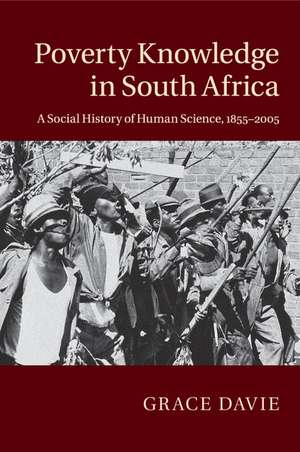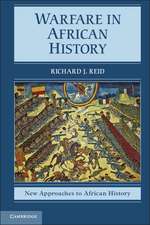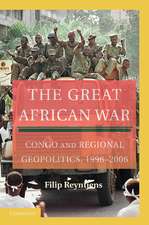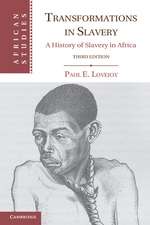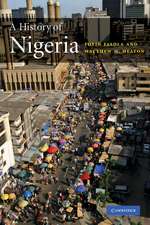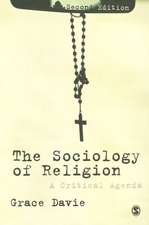Poverty Knowledge in South Africa: A Social History of Human Science, 1855–2005
Autor Grace Davieen Limba Engleză Paperback – 5 aug 2015
| Toate formatele și edițiile | Preț | Express |
|---|---|---|
| Paperback (1) | 209.65 lei 6-8 săpt. | |
| Cambridge University Press – 5 aug 2015 | 209.65 lei 6-8 săpt. | |
| Hardback (1) | 462.29 lei 6-8 săpt. | |
| Cambridge University Press – 4 feb 2015 | 462.29 lei 6-8 săpt. |
Preț: 209.65 lei
Nou
Puncte Express: 314
Preț estimativ în valută:
40.13€ • 43.60$ • 33.73£
40.13€ • 43.60$ • 33.73£
Carte tipărită la comandă
Livrare economică 21 aprilie-05 mai
Preluare comenzi: 021 569.72.76
Specificații
ISBN-13: 9781107551732
ISBN-10: 1107551730
Pagini: 346
Ilustrații: 3 b/w illus.
Dimensiuni: 153 x 230 x 20 mm
Greutate: 0.51 kg
Editura: Cambridge University Press
Colecția Cambridge University Press
Locul publicării:New York, United States
ISBN-10: 1107551730
Pagini: 346
Ilustrații: 3 b/w illus.
Dimensiuni: 153 x 230 x 20 mm
Greutate: 0.51 kg
Editura: Cambridge University Press
Colecția Cambridge University Press
Locul publicării:New York, United States
Cuprins
Part I. Lay Knowledge Meets Human Science, 1855–1940: The Co-production of the 'Poor White Problem': 1. Before poverty measurement: conjuring worlds without want; 2. The human sciences in interwar South Africa: William Macmillan, I. D. MacCrone, and the Carnegie Commission; Part II. The Limits of Invention, 1940–70: Social Reform and Quantitative Objectivity: 3. The minimum standards moment: Edward Batson and the Poverty Datum Line (PDL); 4. Rethinking governmentality: urban planning, rural betterment, and the apartheid state; Part III. The People's Facts: Epistemic Mobility and the Negotiated Settlement, 1970–2005: 5. Agitation through quantification: white student activists in the era of black consciousness; 6. From people's power to corporate power: poverty research and the transition to democracy; 7. Baselines and battle lines: social surveying after apartheid; Conclusion; Epilogue.
Notă biografică
Descriere
This book discusses unconventional ways of measuring and addressing poverty in South Africa, which remains one of the country's biggest challenges.
